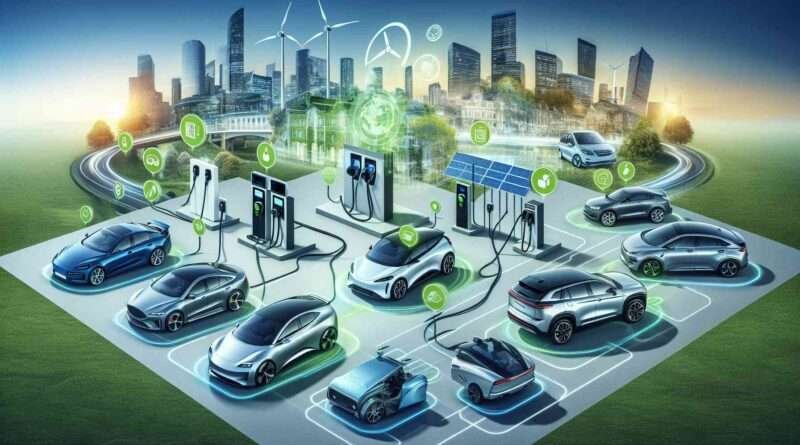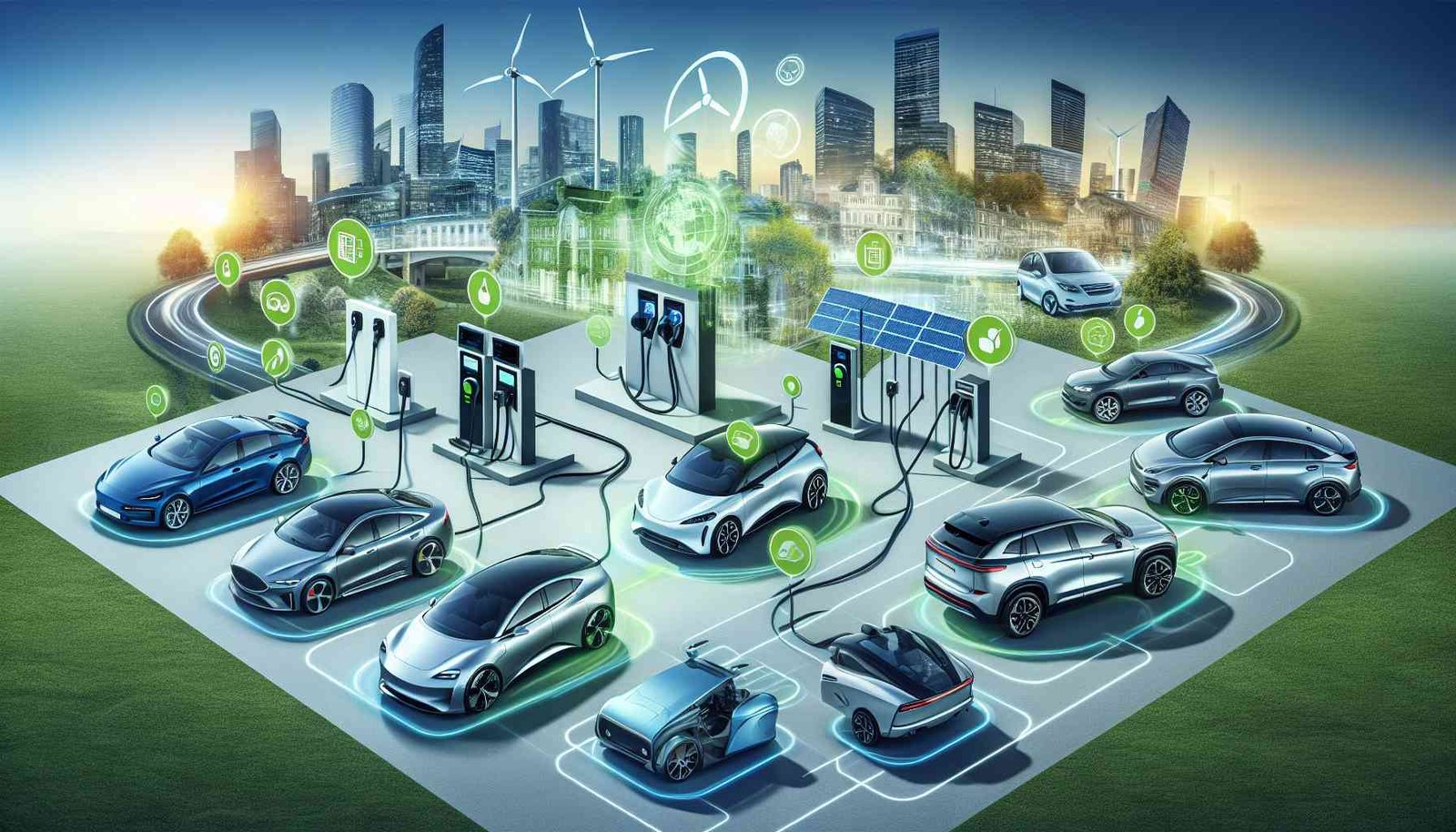Electric Vehicles | The Electric Revolution: Future Transportation
Introduction
In recent years, the automotive industry has witnessed a significant transformation with the rise of electric vehicles (EVs). This revolutionary shift marks a crucial step toward a more sustainable and eco-friendly future. As the world grapples with environmental concerns and strives to reduce carbon emissions, electric vehicles emerge as a beacon of hope. In this article, we will explore the burgeoning electric vehicle landscape and delve into the myriad benefits that come with embracing this clean and green mode of transportation.
The Rise of Electric Vehicles
Electric vehicles have gained unprecedented momentum, with major automakers investing heavily in research and development to produce cutting-edge electric models. From compact cars to sleek SUVs and even commercial trucks, the electric vehicle market has diversified to cater to various consumer needs. Tesla, the pioneer in the electric vehicle realm, has paved the way for others to follow suit, sparking a competitive market eager to innovate and outperform.

Advantages of Electric Vehicles
Environmentally Friendly: One of the primary advantages of electric vehicles is that they produce zero tailpipe emissions, reducing air pollution and contributing to lower greenhouse gas emissions, especially if the electricity used to charge them comes from renewable sources.
Lower Operating Costs: Generally, electric vehicles have lower operating costs compared to traditional internal combustion engine vehicles. Electricity is often cheaper than gasoline, and electric vehicles have fewer moving parts, resulting in reduced maintenance costs.
Reduced Dependence on Fossil Fuels: By using electricity as a power source, electric vehicles contribute to reducing dependence on finite fossil fuel resources, promoting energy diversity and security.
Energy Efficiency: Electric motors are inherently more efficient than internal combustion engines. EVs convert a higher percentage of the energy from the power source to the wheels, leading to better overall energy efficiency.
Potential for Renewable Energy Integration: Electric vehicles can be charged using electricity generated from renewable sources, such as solar or wind power, further reducing their environmental impact.
Incentives and Subsidies: Many governments offer incentives and subsidies to encourage the adoption of electric vehicles, such as tax credits, rebates, and reduced registration fees.
Disadvantages of Electric Vehicles:
Limited Driving Range: Although battery technology is improving, electric vehicles typically have a more limited driving range compared to traditional vehicles, which can be a concern for long-distance travel.
Charging Infrastructure: The charging infrastructure is not as widespread as traditional gas stations, and charging times can be longer. Limited access to charging stations can be a barrier to adoption, particularly for those without a home charging station.
Upfront Cost: The initial cost of purchasing an electric vehicle is often higher than that of a comparable traditional vehicle. However, this cost difference is decreasing as technology advances and production scales up.
Battery Degradation: Over time, the performance and capacity of batteries can degrade, affecting the driving range of electric vehicles. Advances in battery technology are addressing this issue, but concerns about the longevity of batteries remain.
Environmental Impact of Battery Production: The production of batteries, particularly lithium-ion batteries, involves mining and processing raw materials, which can have environmental consequences, including habitat disruption and pollution.
Limited Model Availability: While the variety of electric vehicle models is increasing, there are still fewer options compared to traditional vehicles. Limited model availability may restrict consumer choice.
Dependency on Electricity Grid: Electric vehicles rely on the availability and reliability of the electricity grid. Power outages or instability in the grid could impact the usability of electric vehicles.
Technological Advancements
The rapid evolution of electric vehicle technology has resulted in improved battery efficiency, longer driving ranges, and faster charging capabilities. Breakthroughs in battery technology have become a focal point, as automakers strive to develop batteries that are not only more powerful but also more sustainable and affordable. These advancements contribute to the overall growth and acceptance of electric vehicles among consumers.
Charging Infrastructure
The expansion of charging infrastructure is crucial for the widespread adoption of electric vehicles. Governments, businesses, and communities are investing in the development of charging stations to make EVs more accessible and convenient for users. The proliferation of fast-charging stations and the integration of charging infrastructure into urban planning are steps toward ensuring a seamless transition to electric mobility.
Overcoming Challenges
Despite the numerous benefits of electric vehicles, challenges persist, including concerns about charging infrastructure, battery range anxiety, and the environmental impact of battery production and disposal. Industry stakeholders and policymakers are actively working to address these challenges through research, innovation, and the implementation of responsible recycling practices.
Conclusion
Electric vehicles represent a transformative force in the automotive industry, offering a sustainable and environmentally friendly alternative to traditional gasoline-powered vehicles. As technology continues to advance and governments worldwide commit to reducing carbon emissions, the future of transportation appears to be electric. Embracing this electric revolution is not just a choice; it’s a collective responsibility to create a cleaner, greener, and more sustainable world for generations to come.




Hi there, just became aware of your blog through
Google, and found that it is truly informative. I am gonna watch out for
brussels. I will be grateful if you continue this in future.
Many people will be benefited from your writing.
Cheers! Escape room